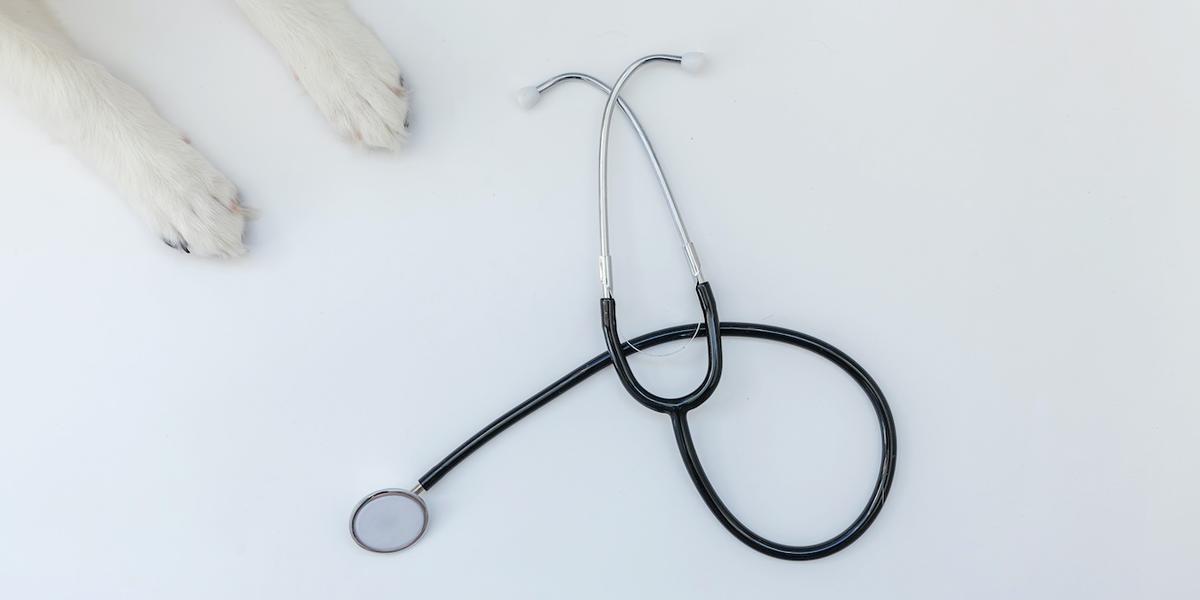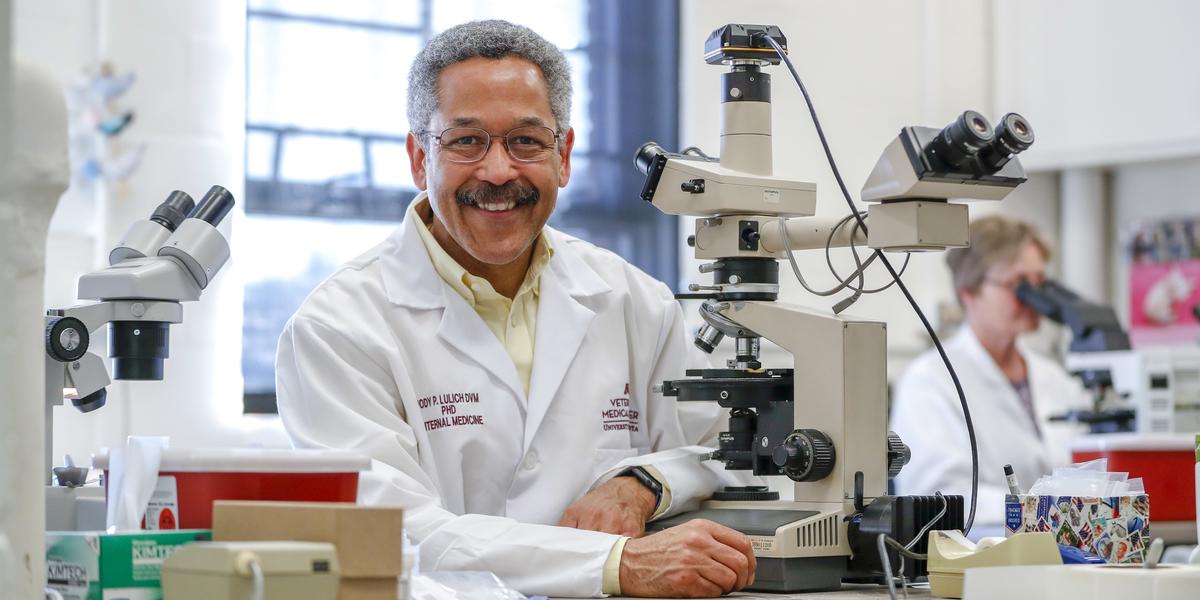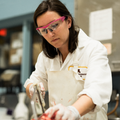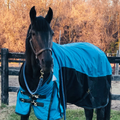- Issue:Tags:Published:Photo(s) by:Jody Lulich
“Clients are prohibited from entering the Veterinary Medical Center.” This is the new normal as veterinarians embrace the times for keeping themselves safe while giving their animal patients urgent care.
I am a veterinary clinician at the University of Minnesota. As in many other veterinary hospitals, things have changed. We practice social distancing and shelter in place like the rest of the world. To do so, we are only seeing emergency cases, cats and dogs in extremis. When clients enter our parking lot, we ask them to stay in the car. We question the pet owner about their own health before we ask them about their dog’s. We ask the pet owners to wear protective masks to cover their nose and mouth. Do they have the virus? is the big question. Maybe they are asymptomatic?
Gone are the friendly chats and greetings, the warmth we used to exchange with the clients. Now clients are not allowed in the hospital except under dire exceptions. Instead, a team of caregivers wearing gowns and facemasks transport sick pets from our parking lot to clean rooms off our lobby. Veterinarians in protective gear examine their pets, discuss care plans with owners over the phone, and empathetically listen to make sure that we are addressing everyone’s concerns.
In this ominous time, when the threat of death hangs over us all, it also seems more likely than usual that pets require euthanasia. Not from Covid-19. Unlike us, the veterinarians and their owners, the animals seem, so far, to be immune. But the dying dogs are still carried in to us, for a compassionate, painless end, an ending easier than Covid-19 human patients may suffer. One thing has not changed. We allow our pet parents to comfort their beloved four-legged family members at the time of their death.
In these desperate days, I reflect on why I became a veterinarian, and why so much of my life has been concerned with alleviating pain.
Jody Lulich
In these desperate days, I reflect on why I became a veterinarian, and why so much of my life has been concerned with alleviating pain. When I was 9 years old, my mother became acutely ill. Within a day, she was much worse. I saw the worried look on my father’s face as he lifted her from the bed, carried her to the car, and sped to the hospital. I was told to wait at home and that they would be back soon. Little did I know, but that would be the last time I saw my mother.
Fifty years later the uncertainty surrounding her demise still haunts me today. Was someone with her when she died?
During this pandemic, loved ones of those sick and dying are facing similar agonies and the excruciating uncertainty that I faced 50 years ago. Why can’t I comfort them in their death? It is surreal to have someone so entwined in your life just disappear. It creates a hole that may take more than a lifetime to completely understand and fill in.
For the people rushing their sick animals to the veterinarian, they are losing a family member, and it is the veterinarian’s calling to ease pain, perhaps especially at the end of life. But the very act of caring for a desperate animal also heightens thoughts of our own mortality and longing for those we have lost.
Jody Lulich
For the people rushing their sick animals to the veterinarian, they are losing a family member, and it is the veterinarian’s calling to ease pain, perhaps especially at the end of life. But the very act of caring for a desperate animal also heightens thoughts of our own mortality and longing for those we have lost.
There is resolution in comforting our loved ones as they move from this earthly place to the next.
I am fortunate that this virus is unlikely to infect dogs and cats. Although I cannot hug my clients in their time of need, I can still let them hug their pets. However, the landscape is changing daily. Our hospital is considering a plexiglass barrier to separate pet parents from the veterinary staff. Their design is thoughtful — a window, albeit small, will allow them to comfort their pet during the final moments of life.
These are uncertain times. I applaud the human health care teams who are making the difficult decisions and risking their own lives to try to save lives and keep others safe. I feel for the families who, for safety reasons, are prohibited from comforting their loved ones in their death. I pray that in the future, there will be sufficient protective gear so family members can visit their loved ones so that no one dies alone. Allow the human beings what we still afford the animals.
I am a veterinarian, but also a pet parent, and this epidemic has heightened my feelings for my own dog and cat. And I am not immune from worry.
Jody Lulich
I am a veterinarian, but also a pet parent, and this epidemic has heightened my feelings for my own dog and cat. And I am not immune from worry — who would care for them if I and my husband should fall ill and die? I look into their eyes with new intensity and appreciation of their silent empathy and affection. In this perilous time, pets offer their innocence and love, and their comfort is needed more than ever.
About the author
Jody P. Lulich, DVM, PhD, DACVIM, is a professor in the Department of Veterinary Clinical Sciences at the University of Minnesota College of Veterinary Medicine (CVM) and a clinician in the internal medicine service at the CVM's Veterinary Medical Center. He specializes in veterinary urology and his clinical and translational research spans epidemiology, mineral metabolism, and biomarkers for disease in that area of practice. He is the director of the Minnesota Urolith Center and the author of the forthcoming memoir, Cats, Dogs, a Monkey and Me, the intimate memoir of a veterinarian.
Editor’s note: The views expressed here are those of the authors and not necessarily of the University of Minnesota College of Veterinary Medicine. We present them here to further discussion around topics related to veterinary medicine that our faculty, staff, and students find important and worthy of deeper contemplation. We encourage you to send responses to cvmcomm@umn.edu. This particular opinion piece first appeared in the Twin Cities Pioneer Press.





